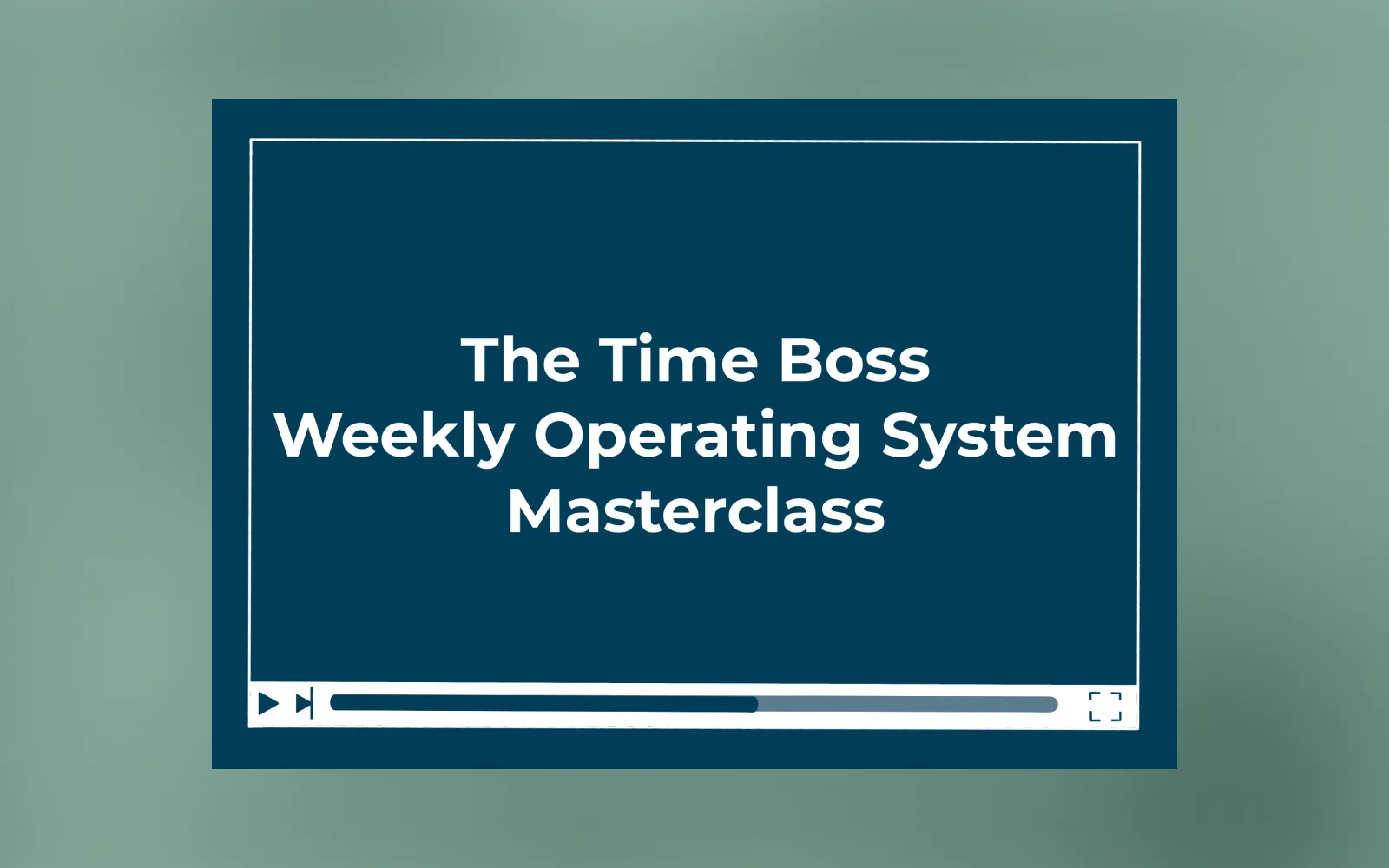Where does the time go? (aka track your time)
Jul 03, 2024
It's end of day Friday and you're shutting down your week, mentally exhausted from all the activity.
You look at your priority list and are shocked to see you only accomplished 2 of the 10 things you set out to do this week.
How is this possible?! Where did the time go?!
There's only one way to find out: track your time.
Why You Should Track Your Time
Struggling with your weight? First thing a nutritionist will ask you to do is track your calories.
Struggling with your finances? First thing a financial planner will ask you to do is track your spending.
You see where this is going for time.
Why does tracking your time help?
Because reality is your friend. You cannot seek to make positive change without first coming to terms with your present reality. If you're struggling with time and not sure where it's going, the only way to find out is to track it. Then and only then can you determine the positive changes to make to move forward.
What You Should Track
In a word: everything. You should track every time in no smaller than 15 minute increments, particularly every time you change focus from one task to another.
And just like tracking calories or tracking spending, it's not enough to track "I ate a candy bar" or "I bought a e-bike", you have to do some categorization and add some meta data breakdowns to actually understand what's happening. Just like calories break down to carbs, fat, and protein, and finances breakdown to food, health, entertainment, etc, time is the very same.
Here are a few suggested categories to start:
- Planned vs. Interrupted - This helps you identify tasks that interrupt your priorities, and put together a plan to solve the root cause of these interruptions.
- Meeting vs Solo - This helps you identify the amount of time you spend in meetings each week, allowing you to identify if those meetings are valuable to help you accomplish your priorities, or not worth your time.
- Frequency (Daily, Weekly, Monthly, etc) - This helps you identify how much of your schedule is tied up in recurring activities, and how much of your time is free to work on new projects/priorities. Often your recurring tasks will serve as hit list for items to delegate to others, as recurring tasks are most likely to be repeatable via simple standard operating procedures or recipes.
- Connected to a Strategic Goal or Aligned to Your Values - Any item on your time budget tracker that IS NOT connected to a strategic goal or aligned to your values should be halted immediately. Why would you spend time on it?
You can add any additional categories or meta data breakdowns that are helpful for you as well.
Where to Track Your Time
You can track your time anywhere that allows you to track at a 15 minute minimum, and allows you to add some categories and meta data breakdowns to the data.
Your company may already have software that allows you to track your time, such as Harvest or Toggl. If so, this is an easy place to start.
If you need a tool, Time Boss has a FREE Time Budget Tracker, including nine different categories and meta data breakdowns to help you see exactly where your time goes.
How to Make Sense of Your Tracked Time
Once you track your time for at least a week, it's time to interpret the data.
The key is to look for patterns in what you tracked. You might consider asking these key questions?
- How much time am I spending on my priorities vs. working on someone else's priorities?
- What interrupts me when I'm working on priorities?
- Are the meetings I'm in serving my or my team's priorities?
- How much time do I actually have outside of meetings to work on priorities on my own?
- Does what I tracked represent my values and who I want to become?
- What should I delegate?
- How much time am I wasting that I could otherwise use on my priorities?
Time Tracking is Step #1
Time tracking is step 1 to take control of your time to get the results you want. Once you have a clear picture of your current reality, you can begin to take next steps to move forward.
Even better, you can do this as a team to understand where the time of your entire team is going, and make the same positive change from there.
If you're ready to take a next step, I'd encourage you to schedule a 30 minute intro call with us to see how we can help you or your team to take control of your time to get the results you want.
Master Your Time Each Week with the "It's About Time" Newsletter
Practical tips, helpful guides and more delivered bi-weekly.

